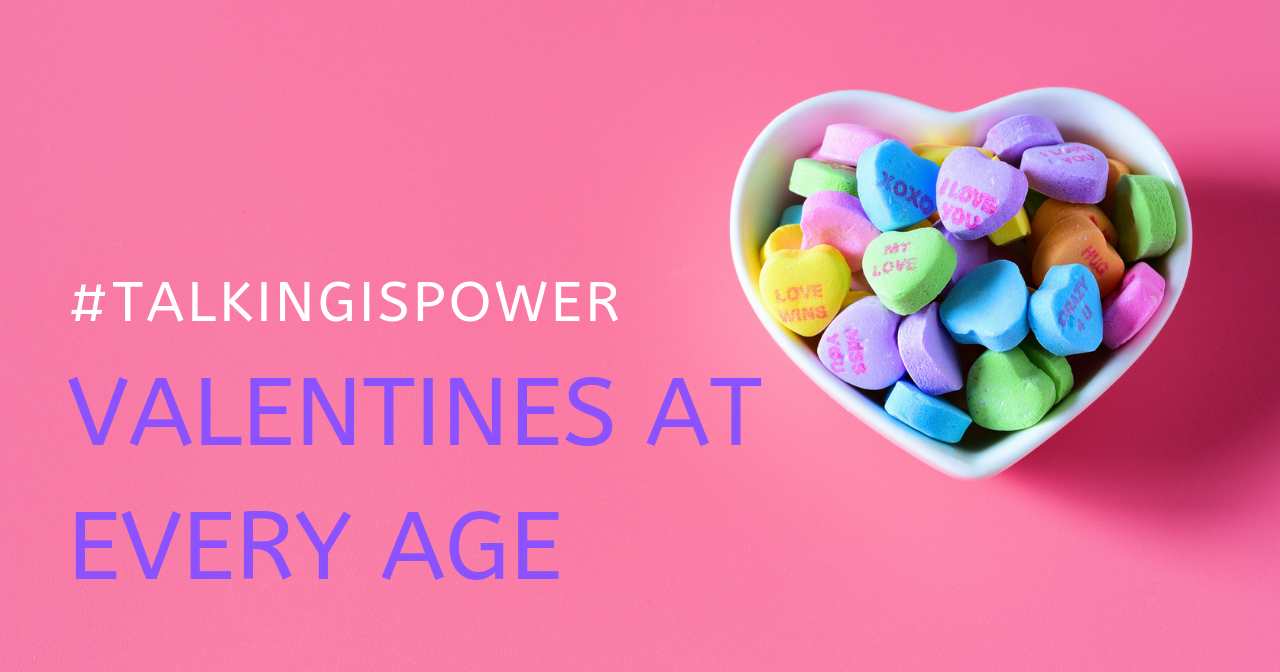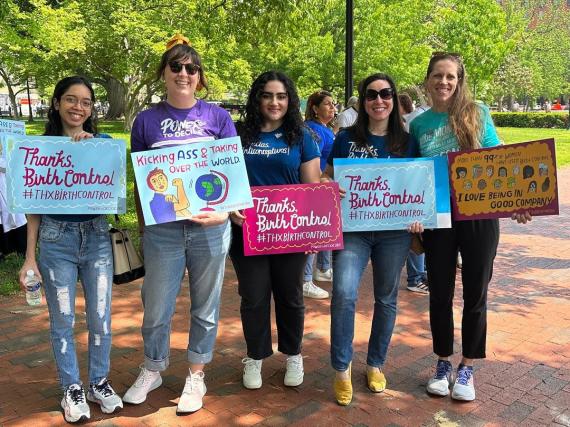Celebrate Valentine’s Day at Every Age
As Valentine’s Day approaches it provides an excellent opportunity for parents, champions, and mentors to talk to the young people in their lives about love, sex, and relationships. Champions play a critical role in a young person’s life to provide accurate information on sex, love, relationships, and contraception.
Wondering when you should begin? Right now! Here are a few examples of how Valentine’s Day offers opportunities to talk to young people at every age:
Toddlers
As they grow into their independence, toddlers will often mimic what they see around them and internalize the messages they learn. Consider including them in your and your significant other’s V-Day plans. If you’re going to have a romantic dinner out, let your toddler help you pick out your outfit. If you’re doing something special at home, let them help by washing produce or mixing the pancake batter.
Inclusion is key, teaching your child to see love in family relationships is very important, but so is exposing them to other kinds of partnerships. There are loads of age appropriate books that show a variety of healthy and diverse relationships. Here are a few of our favorites that you can read to the toddler in your life:
- A Day in the Life of Marlon Bundo
- Welcome Home Little Baby
- "More More More," Said the Baby
- And Tango Makes Three
Toddlers
Once your child enters school they’ll meet new kids and have new experiences without your supervision. It’s an exciting time, and it also may be when your child experiences their first crush. They may develop a sudden interest for a particular classmate, a new fascination with moments where movie characters’ kiss, or dating and marriage plots may pop up in pretend play. Suppress your urge to learn all the details and follow your child’s lead; ask general questions (e.g., “Why are they so special to you?” or “What do you like doing with them?”) so they can direct the conversation.
Valentine’s Day is a day to celebrate crushes and all things love, but it can also be a day where young feelings are hurt. This is an excellent opportunity to practice empathy with your child and talk about how they might feel if they’re left out of the giving of cards or if they were teased by a classmate. Teaching your young person that everyone deserves love is an important lesson, and when the rest of the world is celebrating that magic you can take advantage to bring this lesson home.
Middle School
There’s a reason so many people look back on middle school and shudder. It’s a time full of change, physical and emotional, and most preteens feel awkward about some part of their life. Personal curiosity and peer pressure contribute to making middle school a time when your child may experience their first “real” relationship. You may still think of them as kids, but the feelings and relationships they’re having feel significant to them.
Your child may still celebrate Valentine’s Day in school, but they’re now more likely to do so out of school too. This is a time when your child and their friends start to partner off and explore romantic relationships. This provides an opportunity to have conversations about new romantic feelings, what to expect and setting boundaries. For example, it is alright to communicate that while it is ok to spend time with a significant other, it’s also important not to forgo group activities and risk alienating friends who may not have significant others. Also it’s alright to set boundaries and bring up the notion of having a chaperone (e.g., if they’d like to see a movie, go with them and watch another film). If they and their friends would like to have a group date, consider not chaperoning and instead having them check in via text so you’re aware of where they are and who they’re with.
High School
By the time your young person reaches high school, hopefully they’ll have learned how to have healthy relationships. But high school young people still have questions. Remember to do your best to remain a trusted resource for them to go to for advice. Even if you’re not ready to let go, it’s important to recognize that many high school age young people are not only having relationships, but engaging in sexual activity.
When it comes to Valentine’s Day try setting boundaries alongside your high schooler. Come up with compromises for their curfew and acceptable date ideas together. Not only will this give you the opportunity to continue having conversations with them about sex and relationships, but it’ll also give them a chance to prove to you their maturity.
Each stage of childhood and young adulthood provides parents, champions, and mentors with diverse opportunities to teach young people about sex, love, and relationships. The task may seem intimidating at first, but don’t worry! Making each lesson age-appropriate will help your child to understand themselves and those around them better. Your young person will be grateful you took the time to teach them.



